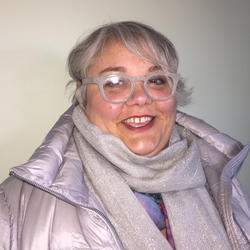Michelle Duncan
Michelle Duncan is a cultural historian who specializes in the intersections of art and society in 20th-century Germany and Austria. Before receiving her academic degrees, she trained as a classical musician and lived for a decade in Germany and The Netherlands. She earned a BA (with honors) in German Literature from Mills College and an MA and PhD in German Intellectual History from Cornell University. Her manuscript, Freud and the Problem of Music: A History of Listening at the Moment of Psychoanalysis, examines the role of music as a discourse signaling various forms of alterity in Viennese Modernism.
Duncan is the author and translator of several essays on aesthetics and philosophy and guest editor of a special issue of the Cambridge Opera Journal on opera and performance studies. She has received research awards from the Arnold Schoenberg Foundation, the Botstiber Institute, the German Academic Exchange Service (DAAD), the Max Kade Foundation and the National Endowment for the Humanities. In 2014 she was the Fulbright Freud Visiting Scholar of Psychoanalysis at the Freud Museum, Vienna, and Visiting Professor at the University of Vienna. In addition to teaching at RISD, she has taught German Studies, Gender Studies and Media Studies at Brandeis, Brown, MIT, Rhode Island College and Wheaton College. She also teaches and mentors first-generation college students at Upward Bound, Rhode Island College.
